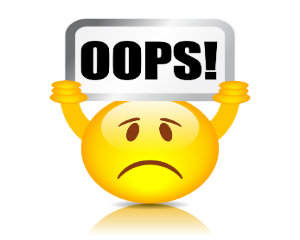Successful SEO is about much more than keyword rankings.
If you want your resort’s website to survive algorithm changes, avoid Google penalties, and get noticed on a web saturated with content, here are 5 critical SEO mistakes you need to avoid.
1) Ignoring Other Search Engines
Google is at the heart of every online search strategy, but that doesn’t mean you shouldn’t pay some attention to the other search engines too. Stats from 2013 show that use of ‘alternative’ search engines has remained steady despite Google’s domination, with Yahoo and Bing raking in a combined total of almost 29% of search market shares in America.
If you haven’t already, get started here.
2) Lack Of Internal Linking
Internal linking is all about the architecture of your site. Including plenty of links between internal pages not only makes it easier for your guests to navigate your website, it helps make your content easier to crawl for search engines, and has a knock-on effect on rankings.
Have you noticed that Google and the other search engines aren’t indexing all the pages on your property’s website? A lack of internal linking could be the culprit. Point the search engines in the direction of your site’s most important pages by internally linking to them on a regular basis.
3) Links to Low Quality Sites
Three words dominate Google’s published guidelines on website best practices: authority, trust and expertise.
As you know, the volume and quality of links directing to your website can affect search rankings. But are you aware that the domains you link to from your website can also impact rankings? With this in mind you should be cautious which sites you link to, particularly when it comes to sharing SEO credited links from your resort’s blog or URL.
4) Slow Page Loading Speed
Websites with faster loading pages are ranked higher by the major search engines, directly leading to more traffic, more page views and more bookings.
If you’re concerned that your property’s website is slow, you can check using the Google PageSpeed Insights Service as an analysis tool.
On mobile, page loading speeds are particularly critical, and should be kept to under a second wherever possible. Implementing responsive design will ensure your website leaves out elements like pop-ups and multimedia that could slow down page load times, helping you provide the best mobile user experience for your guests, and rank higher in mobile search as a result.
5) Generic File Names
Failing to label the images on your resort’s website is a missed SEO opportunity. Search engines are unable to ‘see’ images the way we do, so generic labels such as ‘image-1. jpg’ should be replaced with descriptive file names and alt tags to help them figure out your content and index it correctly.
Are you guilty of any of these SEO errors? Don’t wait to be penalised by Google. Correct your mistakes now and help your website reach its full SEO potential.
RELATED PAGES AND BLOG POSTS:
– 4 Local Tips for SEO Success
– 4 Steps To Climb The Search Results
– 5 SEO Mistakes That Could Be Harming Your Search Ranking

